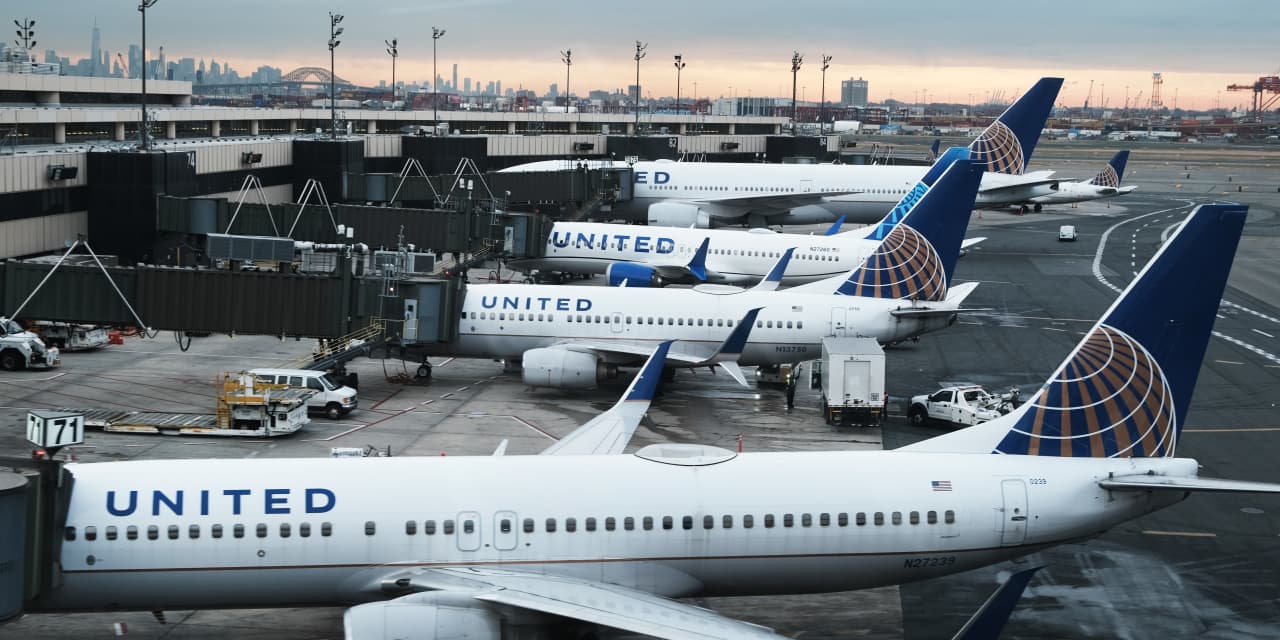It’s shaping up to be an earnings season for the history books for the largest U.S. airlines. But you wouldn’t know it looking at the stock market.
United Airlines
’ (ticker: UAL) third-quarter earnings, like
Delta Air Lines’
(DAL) last week, broke a number of records, including revenue, as well as profit in both the Atlantic and Pacific regions. But the stock tumbled 7.7% in early trading Wednesday, among the sharpest decliners in the S&P 500.
That’s because the strong summer travel season is a distant memory for investors who have more pressing matters to digest when it comes to airlines.
United did a good job of bringing those fears into focus. Essentially the fourth quarter looks challenging amid higher fuel prices and the cancellation of flights to Israel. The latter is set to have a tangible impact on earnings–United said it expects earnings per share of $1.80 if services to Tel Aviv are suspended through October, or $1.50 if it persists until the year-end.
In both scenarios earnings would miss Wall Street’s expectations of $2.05 per share.
Shares in
American Airlines
(AAL), which reports earnings Thursday, were down 5% in early trading, while Delta stock fell 4.4%.
Along with the guidance disappointment, United’s exposure to Israel is likely a significant factor behind its underperformance. Seaport Research analyst Daniel McKenzie said Israel accounts for around 2% of United’s total flying.
He cut his full-year earnings forecast to $9.77 per share, from $10, primarily due to the loss of flights to Israel. But McKenzie added that while the near-term looks rough, United is a “great story longer term.” He said that management’s messaging on the fourth quarter environment was “otherwise upbeat,” with stable demand and revenue per available seat mile, and strong close-in, or last-minute, demand. He maintained a Buy rating on the stock with a target price of $69.
American’s impact from the Israel-Hamas conflict is likely to be less severe than that of United when it reports earnings Thursday. Analysts expect the company to report earnings per share of 25 cents in the third quarter on revenue of $13.5 billion, according to FactSet data.
Delta’s president Glen Hauenstein said the company was “very confident” on meeting its guidance range even with a worst-case scenario relating to Israel, on its earnings call last week.
But the risk of a prolonged conflict keeping oil prices, and therefore jet fuel prices, elevated is one set to affect all airlines.
United, Delta, and American are all well-positioned to outperform the rest of the U.S. airline industry, given their international exposure and greater ability to absorb higher costs.
But the trio still face a tough end to a year that started so well.
Write to Callum Keown at callum.keown@barrons.com
Read the full article here













Leave a Reply